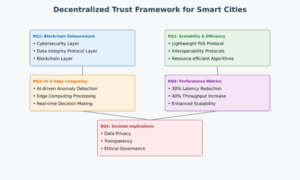Goldman Sachs Executive Leaves China JV Amid Asset Management Challenges

Goldman Sachs Faces Challenges in China’s Evolving Crypto Landscape
Goldman Sachs’ Crypto Strategy in China at a Critical Juncture
Goldman Sachs is encountering significant hurdles in its cryptocurrency initiatives in China following the resignation of a key executive from its partnership with the Industrial and Commercial Bank of China (ICBC). This departure, confirmed on June 27, highlights the difficulties foreign financial institutions face in China’s asset management sector, especially in light of the recent ban on cryptocurrencies that has altered investor behavior. As the Chinese government tightens regulations on digital assets, wealth management firms are compelled to reassess their service offerings. Consequently, Goldman Sachs may shift its focus away from traditional joint ventures to explore new opportunities. This transition reflects a broader global trend towards blockchain integration and the expansion of digital asset markets.
- Goldman Sachs’ Crypto Strategy in China at a Critical Juncture
- The Impact of China’s Crypto Ban on Goldman Sachs
- The Fallout from China’s Crypto Ban and the Emergence of Alternatives
- Global Strategies Indicate New Directions for Goldman Sachs
- Future Prospects for Goldman Sachs and China’s Crypto Environment
The Impact of China’s Crypto Ban on Goldman Sachs
The resignation poses a significant setback for Goldman Sachs’ cryptocurrency strategy, which has struggled against fierce local competition and a regulatory environment drastically altered by China’s crypto prohibition. Despite the firm’s extensive expertise, its joint venture has faced challenges in gaining market traction. Domestic investment options, which typically feature lower fees and tailored services, have become more attractive to cautious investors amid economic uncertainties. The crypto ban has also led affluent individuals to seek alternative avenues for digital asset exposure, either offshore or through grey markets. This situation underscores the precarious position of Goldman Sachs’ cryptocurrency strategy in China. While the bank has been proactive in blockchain and digital asset markets globally, its domestic efforts may now take a backseat.
The Fallout from China’s Crypto Ban and the Emergence of Alternatives
China’s sweeping ban on cryptocurrencies has effectively prohibited mining, trading, and even the possession of digital tokens. Authorities have cautioned citizens about the risks associated with holding cryptocurrencies abroad. As a result, traditional wealth management firms have seen clients retreat from high-risk investments within China, prompting a shift towards other asset classes. However, even as local crypto markets have quieted, interest in blockchain technology has surged. Hong Kong has emerged as a testing ground for regulated digital asset markets, introducing innovative products such as tokenized green bonds and cryptocurrency exchange-traded funds (ETFs).
The contrasting approaches of mainland China and Hong Kong regarding digital assets complicate Goldman Sachs’ strategy. Wealth management firms are increasingly interested in blockchain-based products that align with regulated markets. Recent initiatives by UBS and the Bank of China, which issued $28 million in digital structured notes on the Ethereum blockchain, exemplify this trend. Goldman Sachs has also made substantial investments in blockchain technology, including its support for Digital Asset’s $135 million funding round aimed at expanding the Canton Network. These developments indicate that the evolution of wealth management is increasingly intertwined with digital transformation, even as mainland China remains restrictive.
Global Strategies Indicate New Directions for Goldman Sachs
Goldman Sachs’ approach to cryptocurrency in China is evolving beyond domestic limitations. The bank’s involvement in tokenized bonds and crypto derivatives suggests a focus on international opportunities. As global wealth management trends shift, clients are increasingly demanding modern, digital solutions. Digital asset markets are becoming more institutionalized, attracting major players like Citadel and BNP Paribas.
However, China’s regulatory framework presents a dilemma for Goldman Sachs. The firm must decide whether to continue pursuing traditional joint ventures or to prioritize opportunities in the global digital asset market. The recent leadership change may signal an early indication of a strategic shift. As digital finance continues to expand, Goldman Sachs’ cryptocurrency strategy in China may transition from cautious participation to more aggressive initiatives beyond its borders.
Future Prospects for Goldman Sachs and China’s Crypto Environment
The path forward for Goldman Sachs’ cryptocurrency strategy in China remains intricate. The ongoing crypto ban continues to suppress local markets, while blockchain adoption accelerates in Hong Kong and other regions, reshaping wealth management practices. Digital asset markets present new avenues for revenue, but regulatory challenges remain a concern. Observers will be keen to see whether Goldman Sachs intensifies its focus on global digital finance or attempts to carve out a new strategy within China’s restrictive environment. For the time being, the bank’s shift away from slow-growing joint ventures indicates that cryptocurrencies and blockchain technology may play an increasingly prominent role in its future plans.







